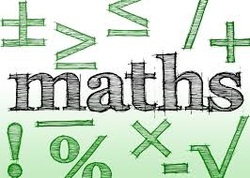
Maths overview:
Mathematics develops students’ skills in a variety of subject areas. In lessons we aim to develop students understanding of both mathematical concepts and develop their understanding of real life problems. Mathematics is taught using our own Framework for Teaching. This encourages teachers to consider prior attainment when planning their lessons, and is written to cover the National Framework in Mathematics. The Scheme of Work is flexible in its approach. This allows the development of Functional skills, where the students apply their mathematical knowledge to a selection of real life problems. This is very important, as it will provide students with a broader view of how mathematics can be applied to real life, including the use of project and investigative work as well as using more traditional teaching methods. All teaching is done with the aim of engaging the students to discuss their mathematics and think of how it applies to the world around them. Students are encouraged to become independent learners and to think creatively when answering questions. Homework is set on a weekly basis for most students. It aims to consolidate learning and students are encouraged to use mathematics websites to work at home.
KS3 Course Overview:
In Years 7 to 9, students study Mathematics in accordance with the KS3 National Framework, via our Scheme of Work. Throughout Key Stage 3 students study the following areas of Mathematics:
GCSE Course(s) Overview:
At Key Stage 4 students begin their study of GCSE Mathematics. The HIGHER course covers work from Grades A* to D. The FOUNDATION course covers mathematics from grade C to G. GCSE Mathematics is a linear course which is 100% assessed with 2 examination papers at the end of Year 11.
Students have short assessments at the end of each unit, termly summative assessments and an End of Year exam. We aim to maximise progress and prior attainment is not a barrier to success in GCSE mathematics.
We encourage all students to own a scientific calculator and bring it to all lessons.
Mathematics develops students’ skills in a variety of subject areas. In lessons we aim to develop students understanding of both mathematical concepts and develop their understanding of real life problems. Mathematics is taught using our own Framework for Teaching. This encourages teachers to consider prior attainment when planning their lessons, and is written to cover the National Framework in Mathematics. The Scheme of Work is flexible in its approach. This allows the development of Functional skills, where the students apply their mathematical knowledge to a selection of real life problems. This is very important, as it will provide students with a broader view of how mathematics can be applied to real life, including the use of project and investigative work as well as using more traditional teaching methods. All teaching is done with the aim of engaging the students to discuss their mathematics and think of how it applies to the world around them. Students are encouraged to become independent learners and to think creatively when answering questions. Homework is set on a weekly basis for most students. It aims to consolidate learning and students are encouraged to use mathematics websites to work at home.
KS3 Course Overview:
In Years 7 to 9, students study Mathematics in accordance with the KS3 National Framework, via our Scheme of Work. Throughout Key Stage 3 students study the following areas of Mathematics:
- Number (including the Four Operations(+,-,x,÷), Fractions, Decimals, Solving Calculator Problems)
- Algebra (including Like terms, Brackets, Equations and Substitution)
- Geometry (including 2D/3D shape properties, Area, Volume and Conversions)
- Statistics (including Averages, Graphs, Data interpretation and Probability)
GCSE Course(s) Overview:
At Key Stage 4 students begin their study of GCSE Mathematics. The HIGHER course covers work from Grades A* to D. The FOUNDATION course covers mathematics from grade C to G. GCSE Mathematics is a linear course which is 100% assessed with 2 examination papers at the end of Year 11.
Students have short assessments at the end of each unit, termly summative assessments and an End of Year exam. We aim to maximise progress and prior attainment is not a barrier to success in GCSE mathematics.
We encourage all students to own a scientific calculator and bring it to all lessons.
